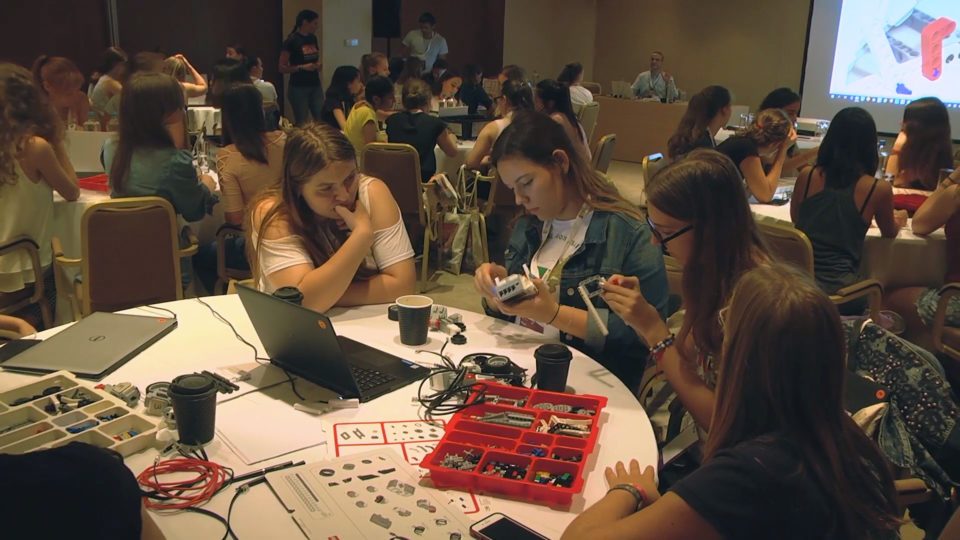As an engineering student at the University of Pennsylvania in the 1990s, Didem Un Ates was one of only five women in a graduating class of 180. Today, she’s on a mission is to drastically change those numbers.
Un Ates is part of a Microsoft team that launched “Alice envisions the future,” a boot camp for girls focused on artificial intelligence. The first event in Athens – packed with keynote speeches, panel discussions and hands-on workshops – helped spark the passion for AI in 160 girls from 16 countries.
After witnessing the success of the inaugural event, the team took the show on the road, first to London last October, and then to New York in March.
Registration is now open for two more “Girls in AI” hackathons for girls 14 to 18, which are scheduled for next month:
Registration is free and attendees do not need a laptop or any experience with coding – just a curiosity about AI and a creative mind. The first 80 students to register will be accepted.
About 50 girls between attended the “Girls in AI” hackathon in New York, tackling subjects ranging from human-centered design and AI ethics to machine learning.
Un Ates said the transformation over the course of the weekend can be astounding. Girls who may come into the program shy, timid and hesitant of delving into advanced technology such as AI can leave the program with an entirely different mindset.
“They may have heard of AI, but they don’t exactly know what it means or what a hackathon means. But by the end of Sunday, there are all these super-excited, confident individuals who cannot stop talking about how they are going to build a business out of their project,” said Un Ates, senior director of customer care intelligence for the Microsoft Business Applications Group, Cloud & AI.
Winning teams from the hackathons are eligible to enter Microsoft’s AI for Good Idea Challenge, an international contest for developers, students and data scientists who use AI to tackle some of society’s greatest obstacles. The deadline for entries is June 26.
Un Ates says she is devoted to evangelizing STEM education – and artificial intelligence specifically – because of the dire underrepresentation of women in the field.
“Only 12% of artificial intelligence and machine learning experts are female,” Un Ates noted. “And we have the opportunity to change that.”
According to the U.S. National Center for Education Statistics, in 1985 women accounted for roughly 37% of all computer science undergraduate students. Today, that number is 12%. According to a recent WIRED & Element AI study, only 12% of machine learning researchers are women.
Un Ates said it’s important that women are well-represented in computer science both because of the perspective they bring to the field and because of the job opportunities the field can offer.
And that is exactly what Microsoft’s “Girls in AI” hackathons are designed to accomplish. According to the team’s event website, the curriculum gives teenage girls “the chance to utilize AI and machine learning techniques to tackle global challenges in a holistic manner.” The two-day event will give attendees an understanding of design thinking, strategy and business model development, ethics, social responsibility and pitching skills.
The “Alice Envisions the Future” hackathon program is just one of the ways Microsoft working to get more girls and young women involved in computer science. Microsoft also offers DigiGirlz Days, one-day events designed to provide girls with a better understanding of what a career in technology is like, and DigiGirlz High Tech Camp, a program developed 19 years ago to help dispel stereotypes in the high-tech industry.
Related:
- Register: Microsoft ‘Girls in AI’ Hackathon in San Francisco or the Microsoft ‘Girls in AI’ Hackathon in the Seattle area
- Read: First impressions from our AI driven youth bootcamps
- Visit: DigiGirlz High Tech Camp





